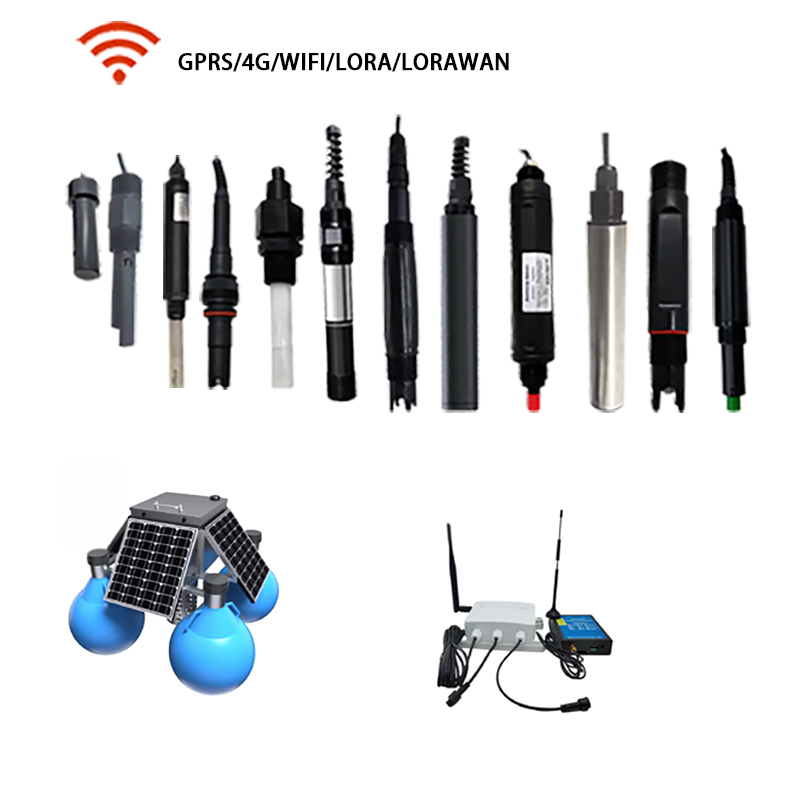Santiago, Chile – January 16, 2025 — Chile is witnessing a technological revolution in its agricultural and aquacultural sectors, driven by the widespread adoption of multi-parameter water quality sensors. These advanced devices are providing farmers and aquaculture operators with real-time data on water conditions, significantly enhancing productivity, sustainability, and environmental stewardship across the country.
Enhancing Agricultural Efficiency
Chile’s diverse agricultural landscape, which produces a vast array of fruits, vegetables, and other crops, faces significant challenges due to climate variability and water scarcity. Multi-parameter water quality sensors are being used to monitor key indicators such as pH levels, dissolved oxygen, turbidity, and nutrient concentrations in irrigation water, allowing farmers to make informed decisions about water management.
“Our ability to monitor water quality in real-time has transformed how we manage our irrigation systems,” says Laura Rios, a grape producer in the famous Maipo Valley. “The sensors help us optimize water usage, ensuring our crops receive exactly what they need without overusing this precious resource.”
By enabling more precise water management, these sensors have led to reduced wastage and improved crop yields, which is particularly crucial in regions impacted by drought conditions. The implementation of sustainable practices is helping farmers adapt to the challenges posed by climate change while maintaining their livelihoods.
Boosting Aquaculture Sustainability
Chile is the world’s second-largest producer of farmed salmon, and the aquaculture industry is a vital component of the nation’s economy. However, maintaining optimal water quality is essential for fish health and productivity. Multi-parameter sensors are now being installed in fish farms to continuously monitor water conditions, helping operators respond swiftly to fluctuations that could impact aquatic life.
Carlos Silva, a salmon farmer in the Los Lagos region, shares, “With these sensors, we can track changes in temperature, salinity, and oxygen levels, allowing us to adjust our practices accordingly. This proactive approach not only improves fish health but also helps us reduce our environmental impact.”
The ability to monitor water quality in real-time is proving invaluable in preventing disease outbreaks in fish populations, which can lead to significant economic losses. By ensuring optimal conditions, aquaculturists can enhance fish welfare and improve product quality, ultimately benefiting consumers.
Mitigating Environmental Impacts
The environmental challenges associated with industrial agriculture and aquaculture, particularly in water-intensive regions, can be mitigated through the use of advanced monitoring technologies. Multi-parameter sensors provide data that can help identify potential pollution sources, allowing farmers to implement corrective measures swiftly.
“By monitoring nutrient runoff and other pollutants, we can take action to minimize our ecological footprint,” explains Mariana Torres, an environmental scientist working with agricultural producers in the region. “This technology enables a more holistic approach to management practices that protect our biodiversity and water resources.”
A Collaborative Approach to Adoption
As interest in multi-parameter water quality sensors grows, collaboration among tech developers, government agencies, and local farmers is fostering a supportive ecosystem for their adoption. The Chilean government, through initiatives like the National Program for Technological Innovation in Agriculture (PNITA), is promoting the integration of smart agriculture technologies to boost productivity and sustainability across sectors.
Workshops and training sessions are being organized to educate farmers and aquaculturists about the benefits of using these sensors, emphasizing data analysis and management to maximize the advantages.
Looking Ahead: A Sustainable Future
The impact of multi-parameter water quality sensors on Chilean agriculture and aquaculture is clear: they represent a significant step forward towards sustainability and efficiency. As the global demand for environmentally-friendly and sustainably-produced food continues to rise, technologies that improve monitoring and management practices will be key to maintaining Chile’s competitive edge in these industries.
As farmers and aquaculture operators embrace these innovations, the future looks promising. The combination of cutting-edge technology, sustainable practices, and collaboration could position Chile as a leader in responsible resource management, aligning agricultural production with the urgent need for environmental conservation.
For moreWater quality sensor information,
please contact Honde Technology Co., LTD.
Email: info@hondetech.com
Company website: www.hondetechco.com
Post time: Jan-17-2025


